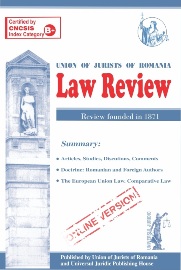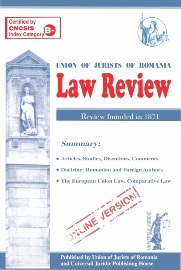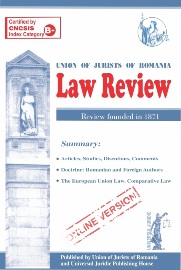
CHALLENGES OF THE EU ADMINISTRATIVE SPACE: CONVERGENCE OF NATIONAL ADMINISTRATIONS TO THE EUROPEAN ADMINISTRATIVE LAW
Since their creation, back in the 1950s, the three European Communities (later known as the European Union) have constantly evolved towards a stronger union and towards the establishment of various common or shared ‘spaces’. Frequent references to the European space or the use of concepts like ‘space of security and freedom’ stand as a proof of the will of the member states and the European institutions to strengthen their cooperation. Along the same lines, the reference to the European administrative space has become an integrant part of the European political discourse and agenda. The progressive enlargement of the European Union has brought about the necessity to ensure the harmonization of the national administrative law and procedure with the European administrative law, within a common, administrative space. The existence and characteristic features of a European administrative space form the subject of intense debate and of a rich scientific literature. The present article intends to make its contribution to this debate, analyzing and presenting some of the most relevant theoretical findings concerning this topic and highlighting the challenges that both the national administrations and the European institutions has to face in their effort at finding the right ways towards a European model of administration.
More...

